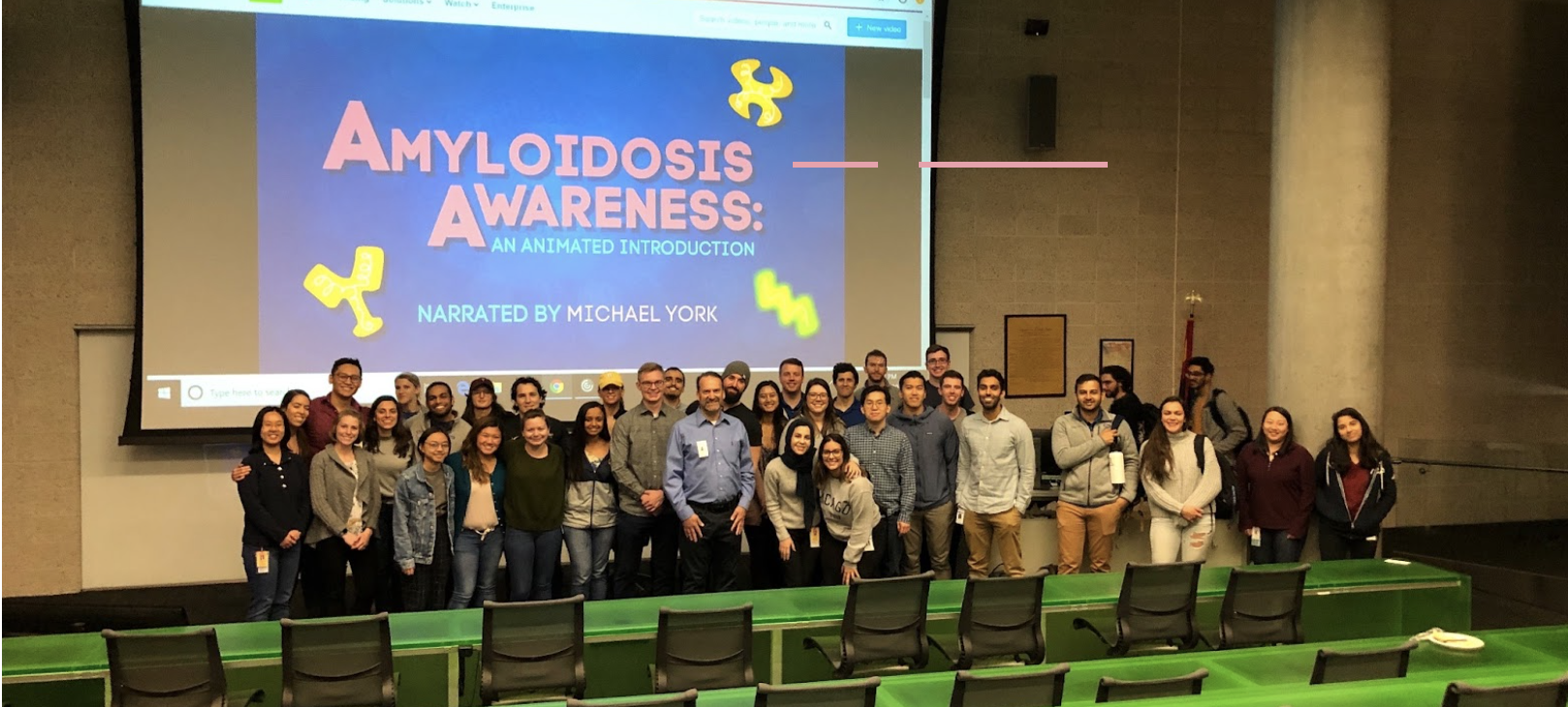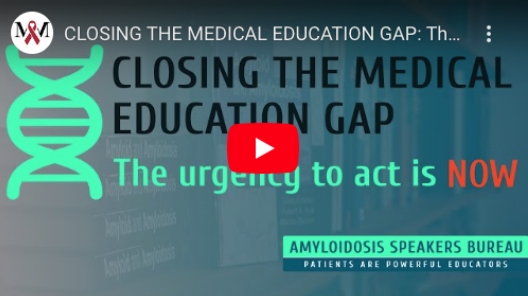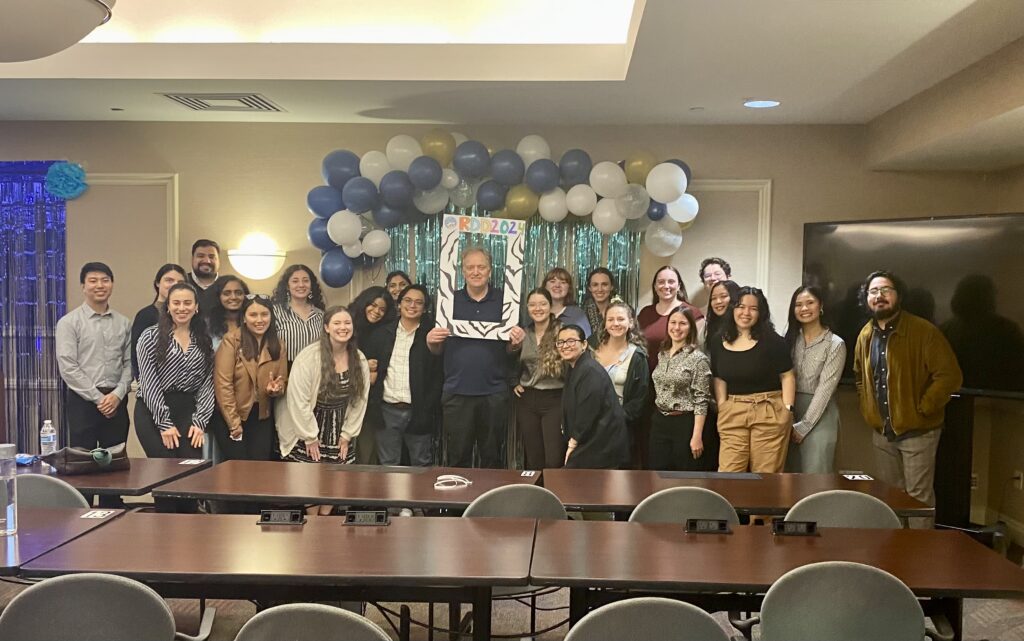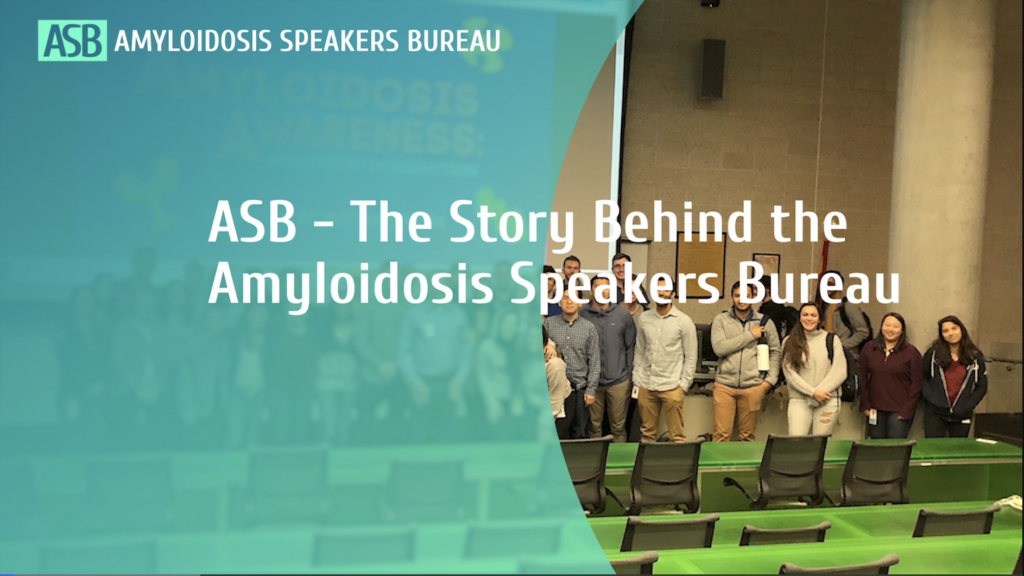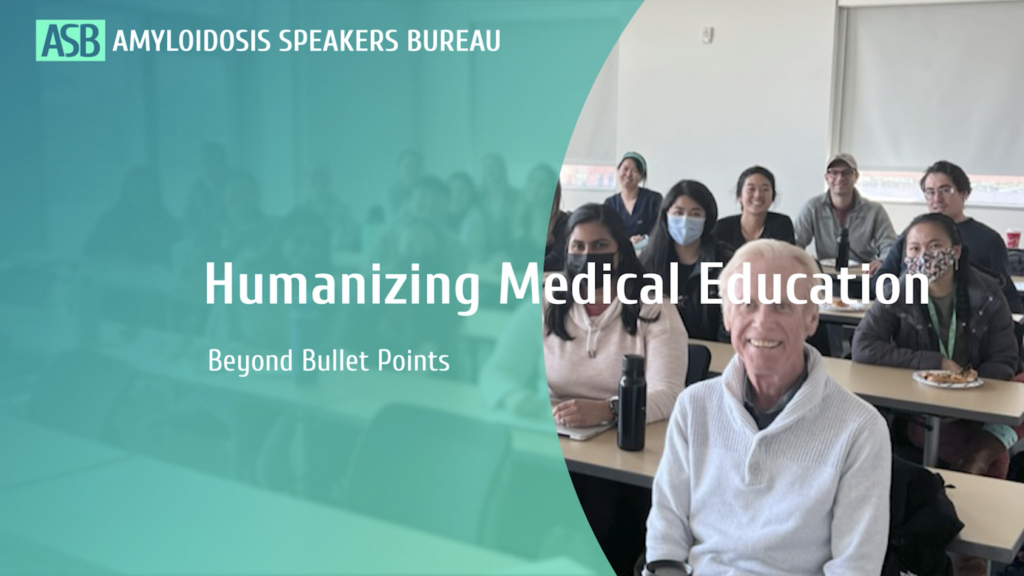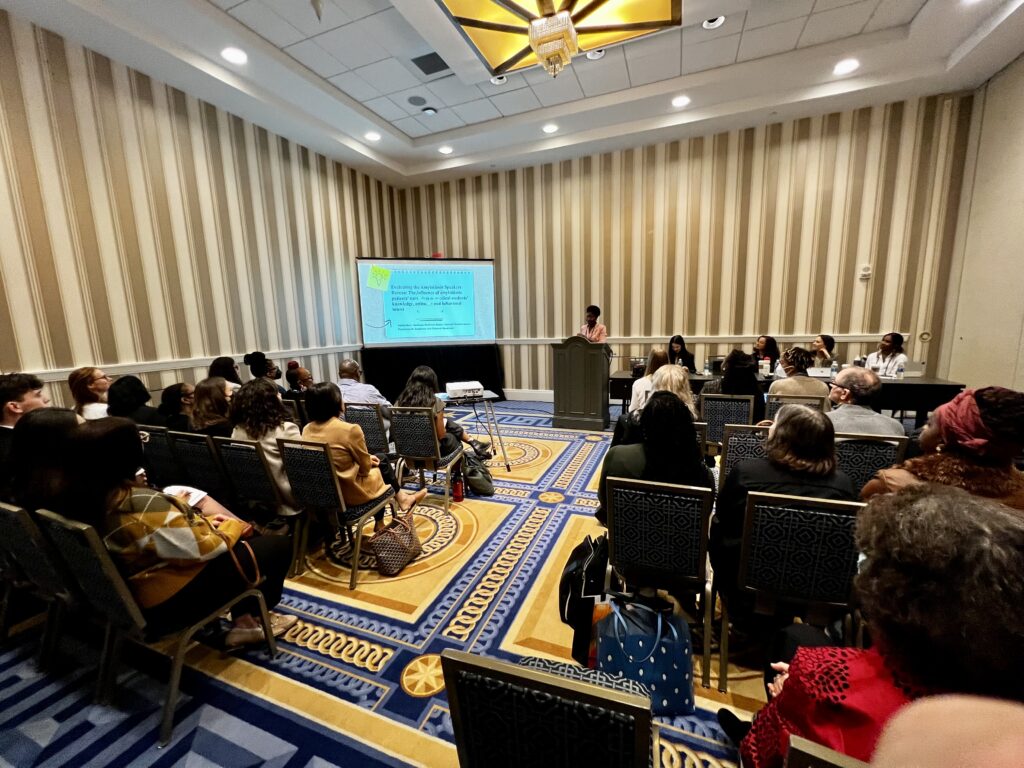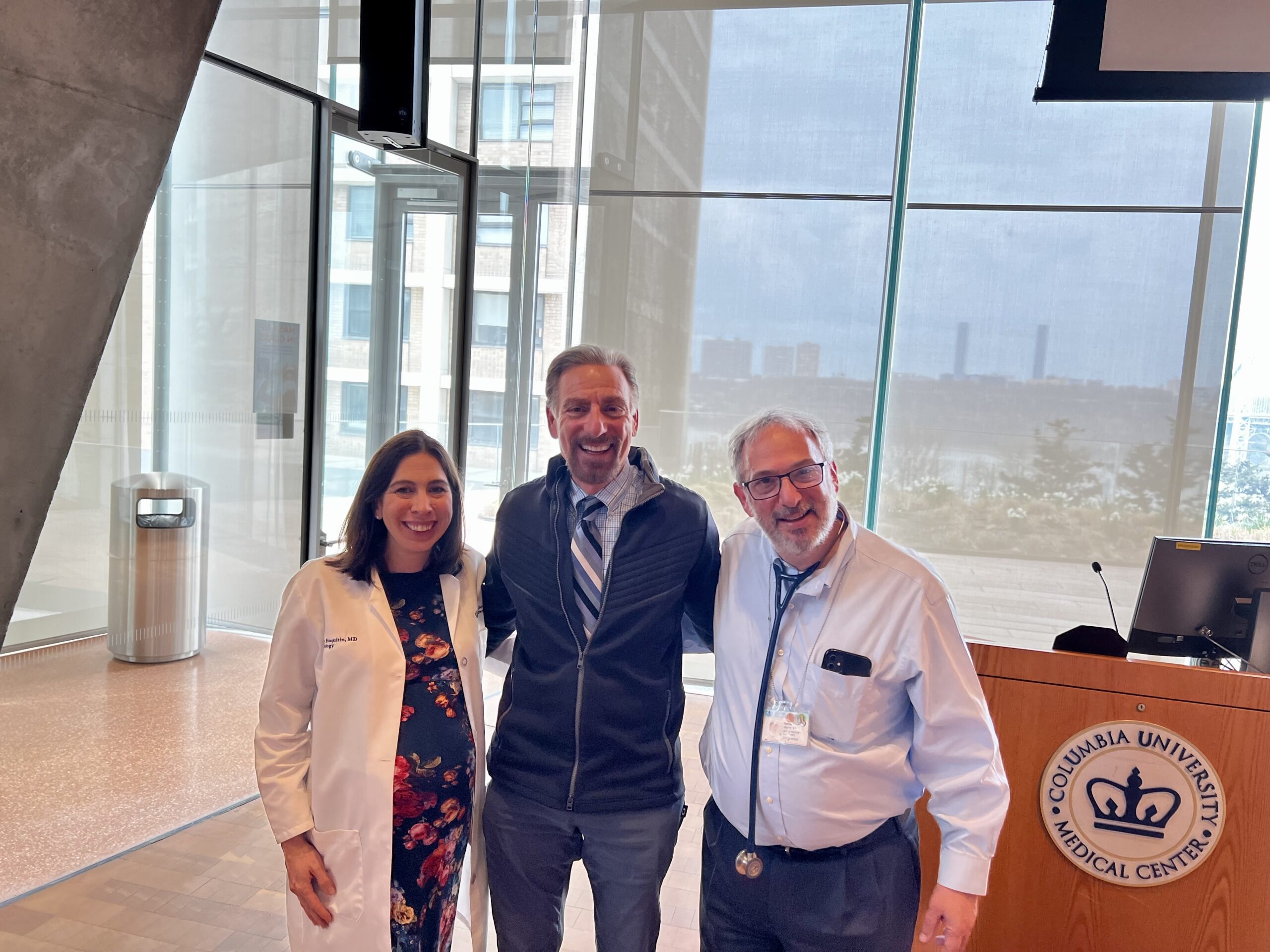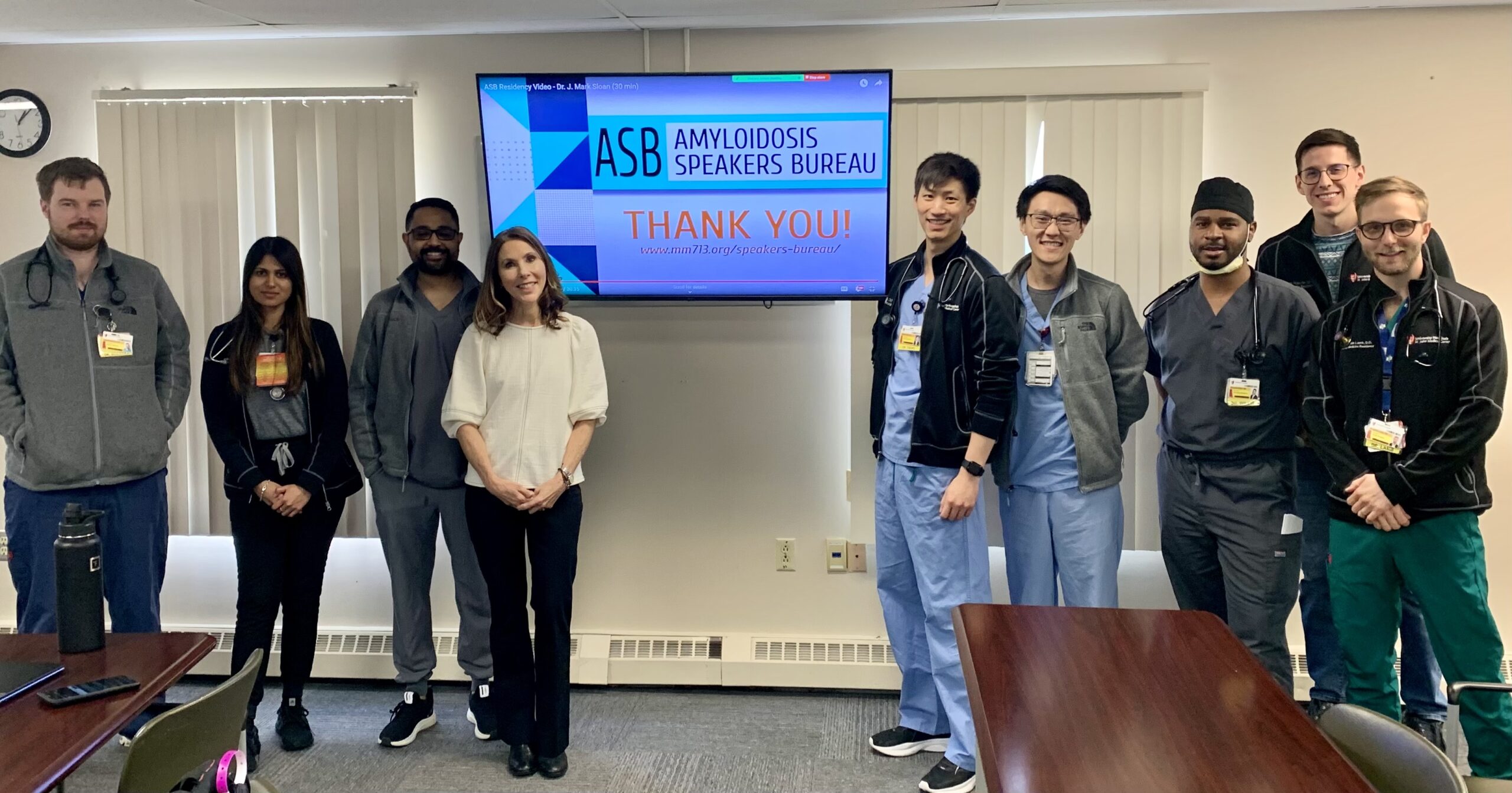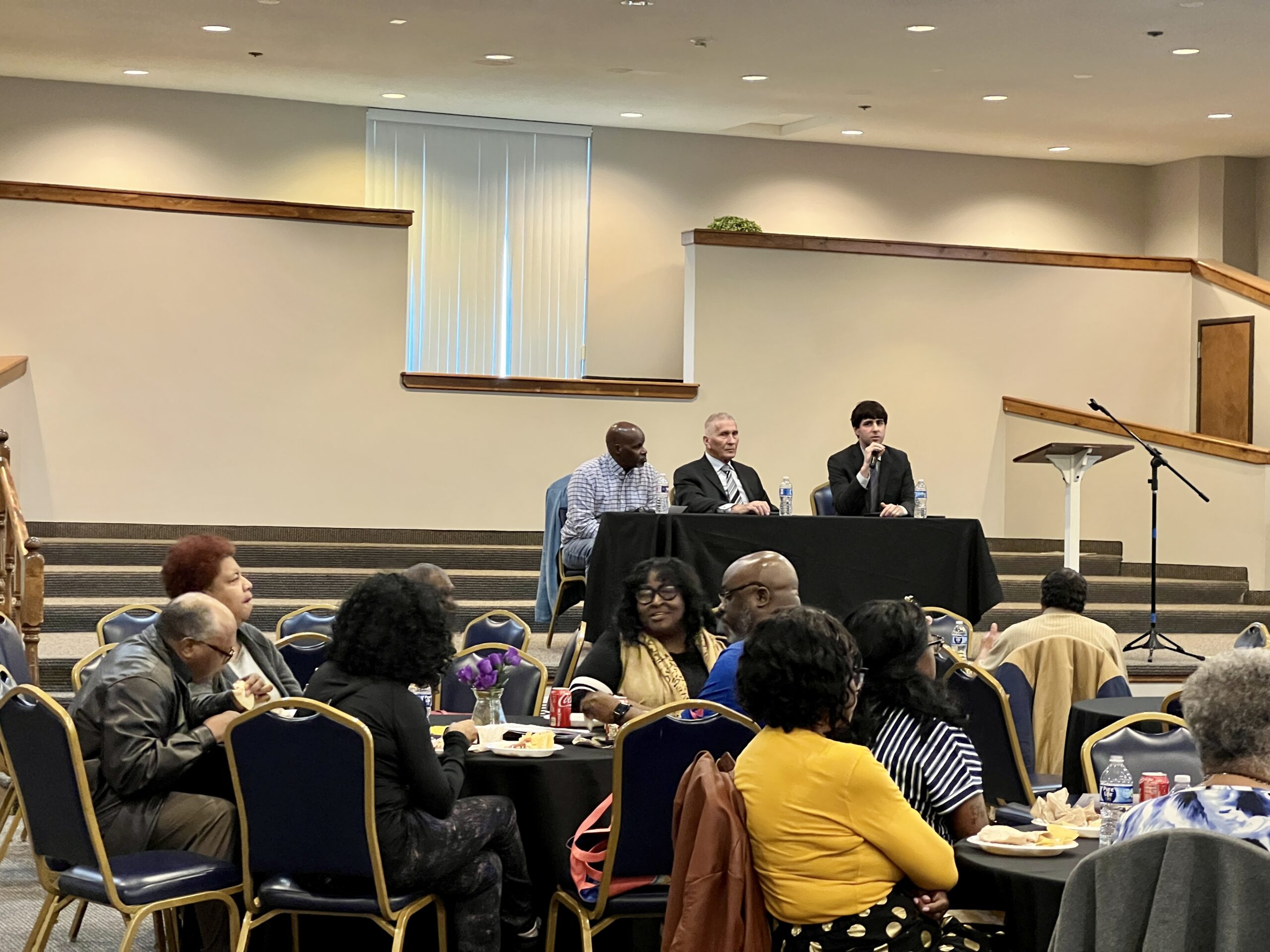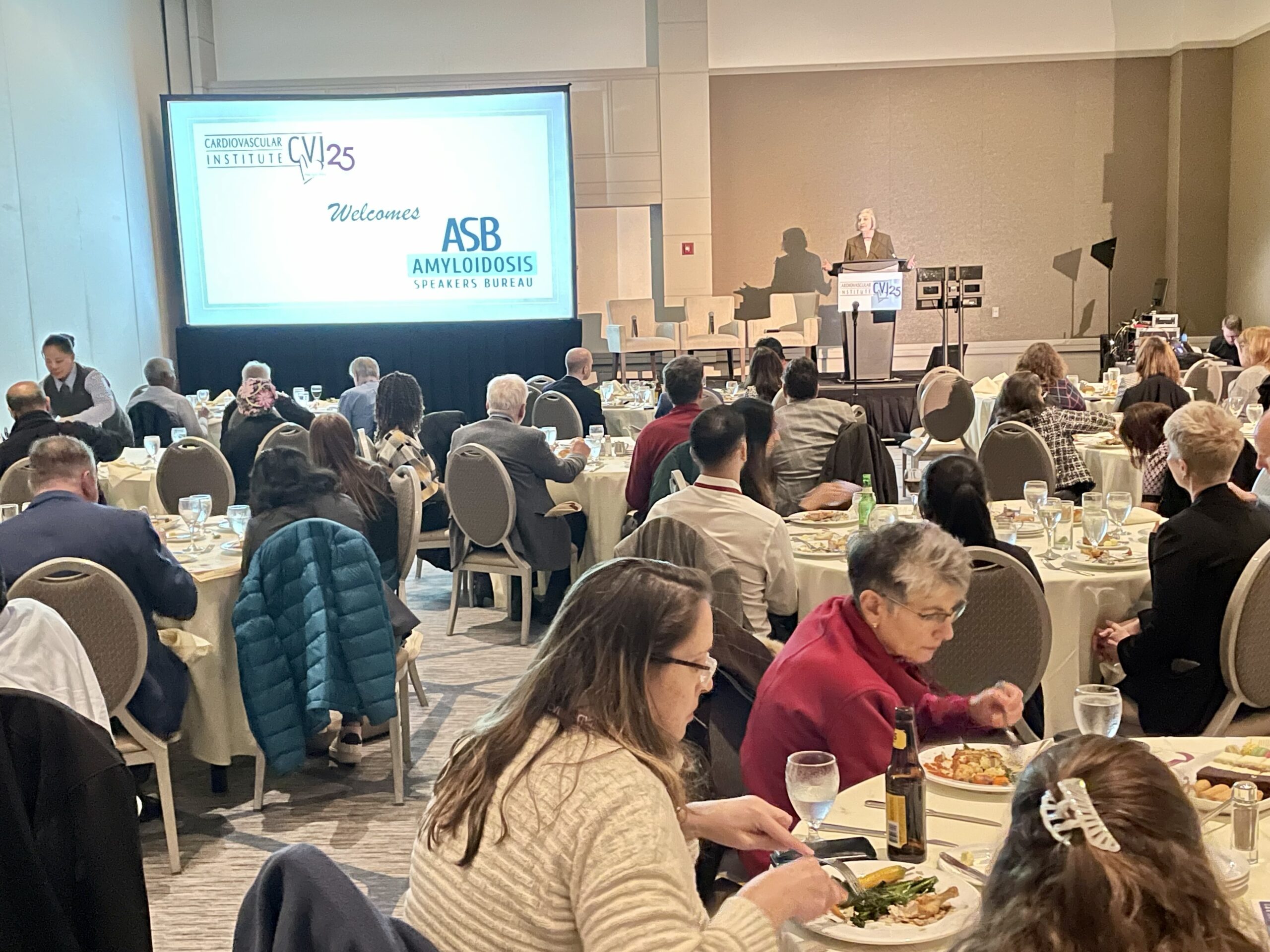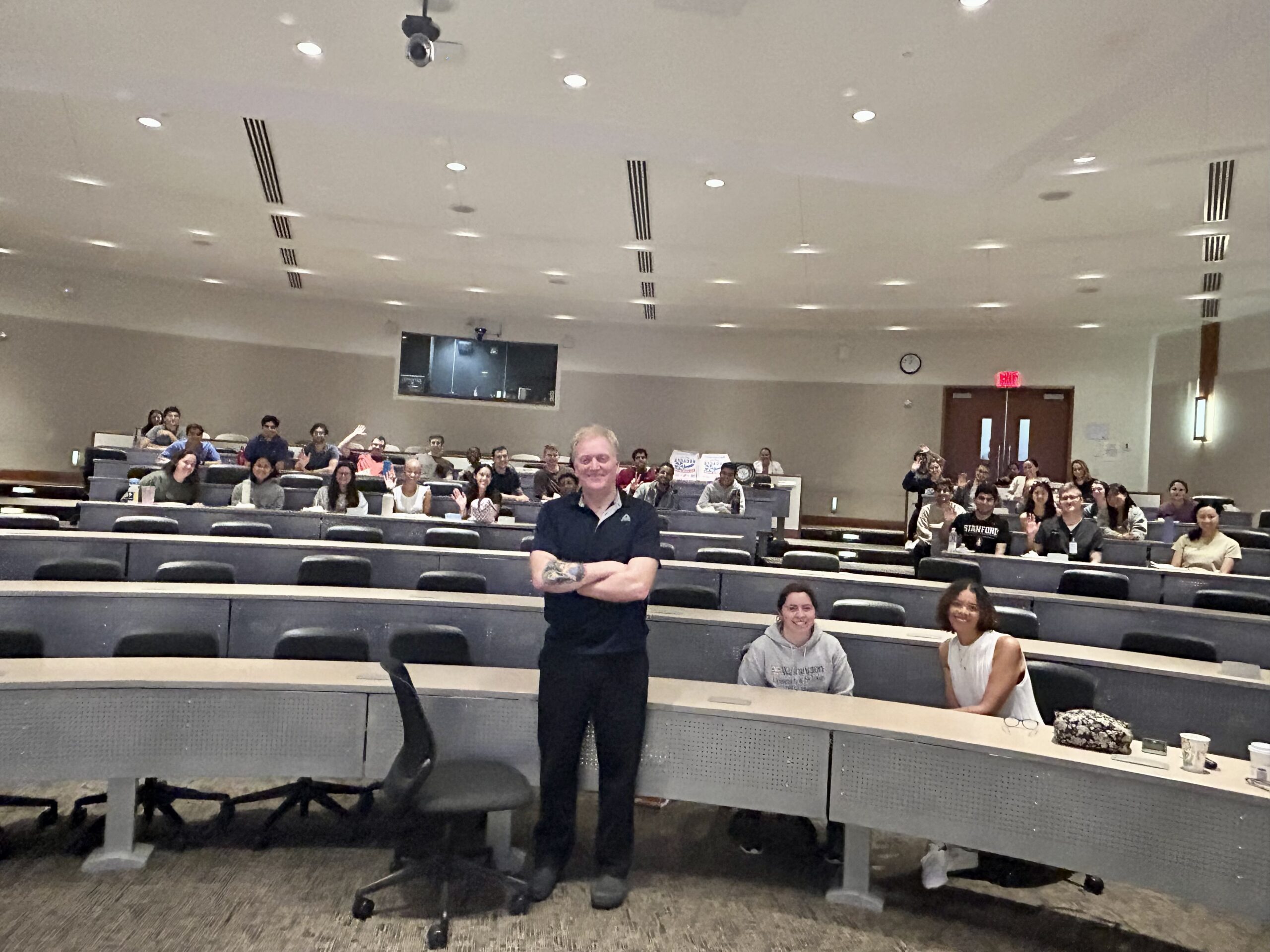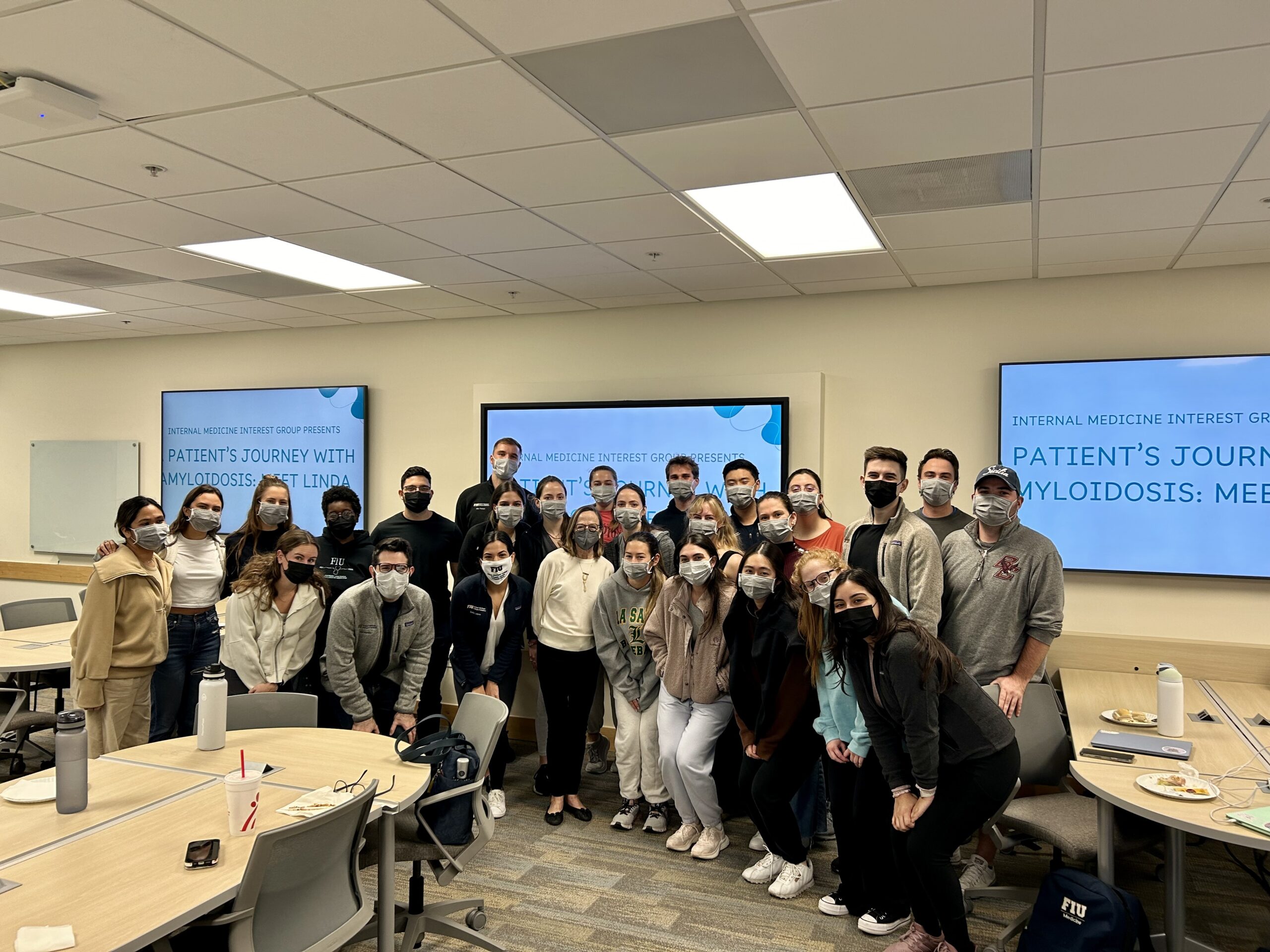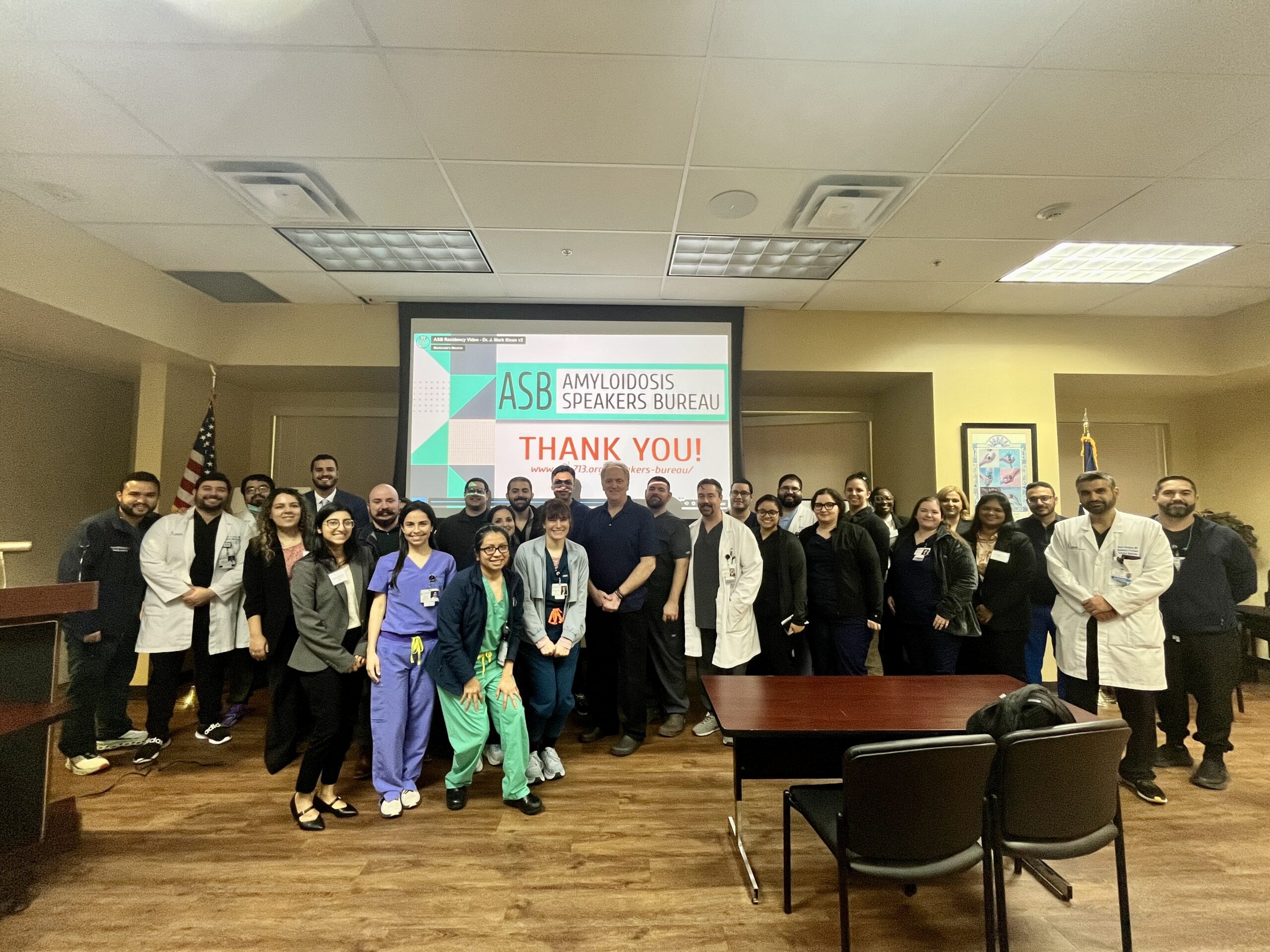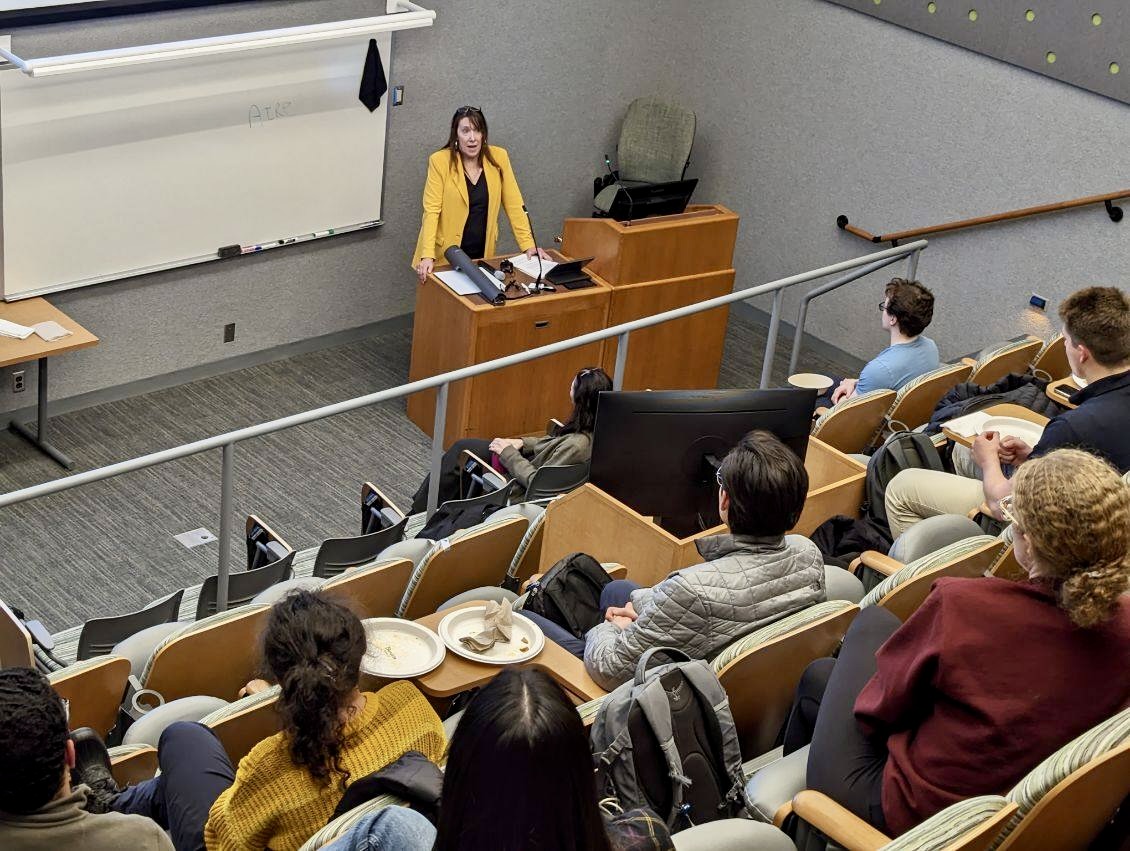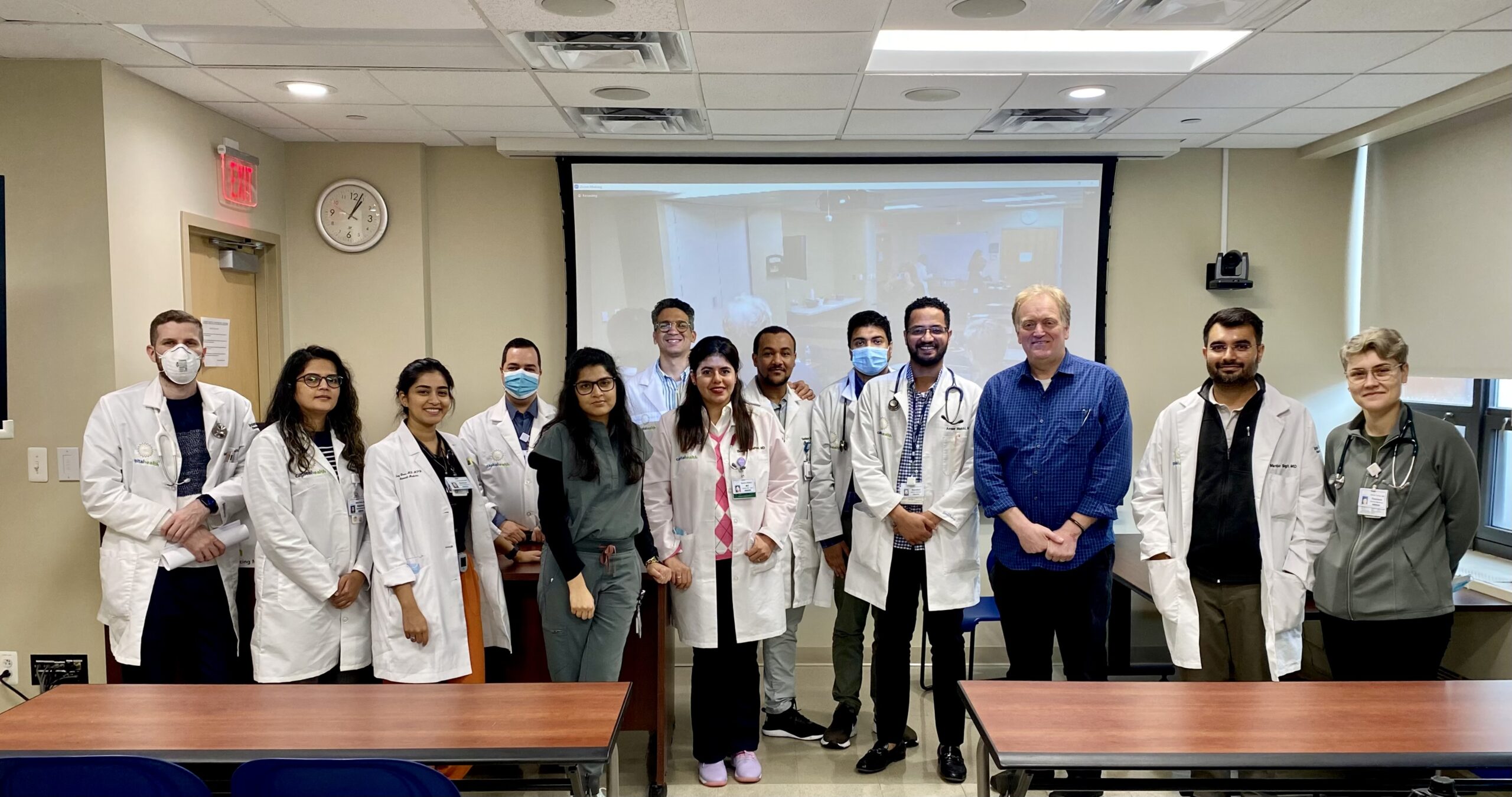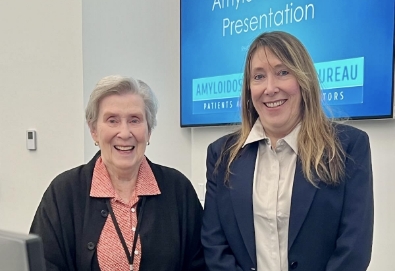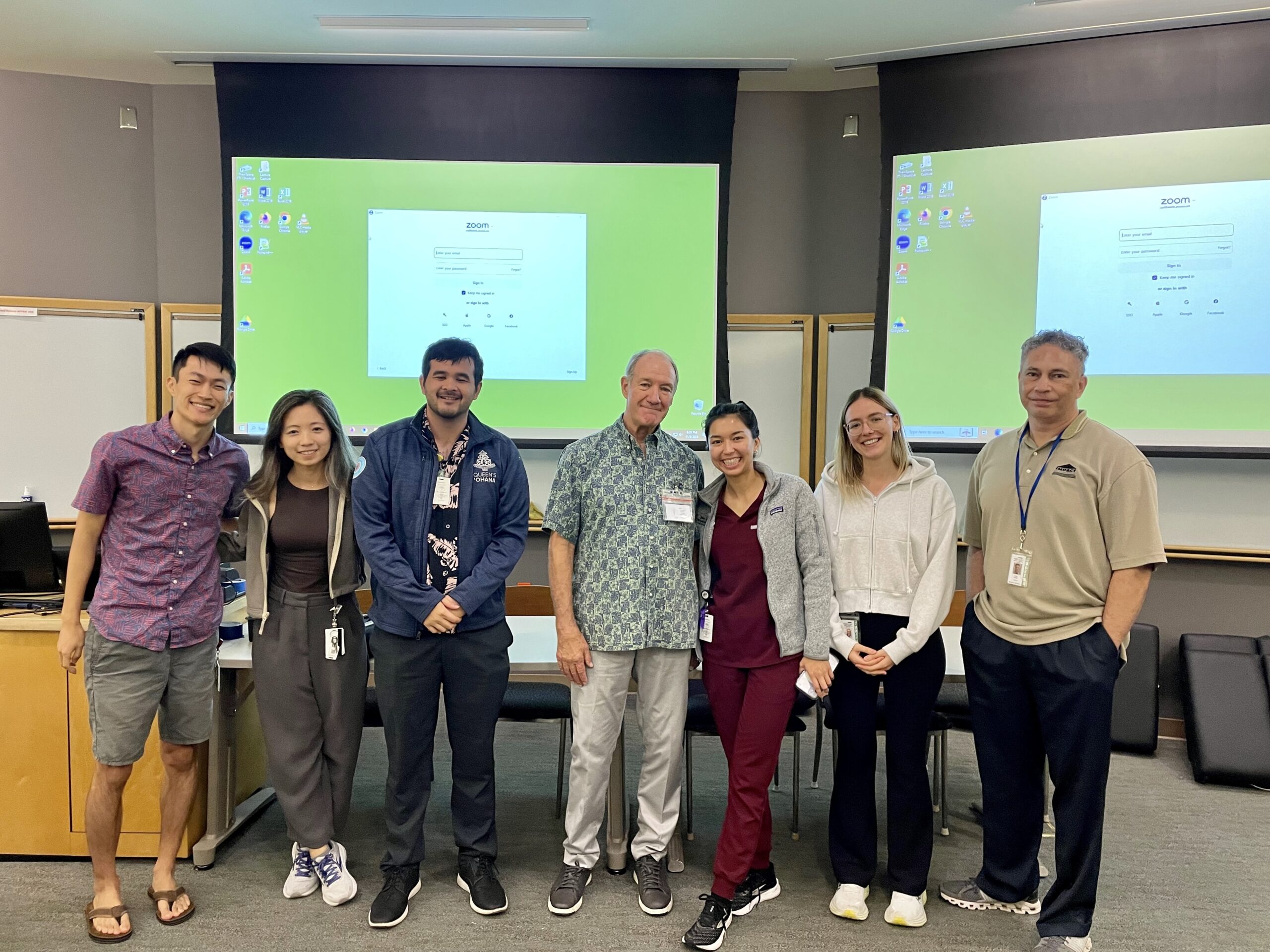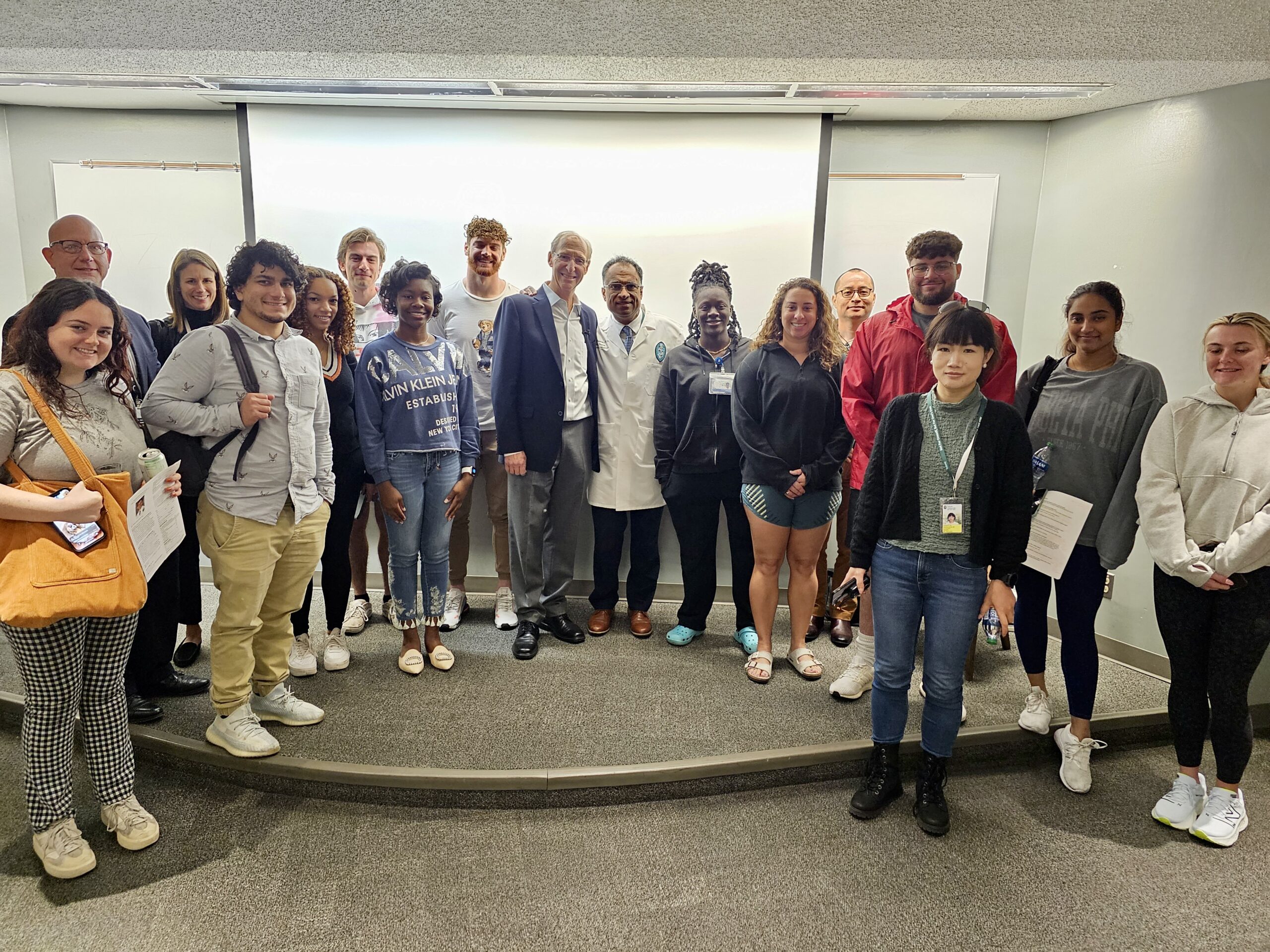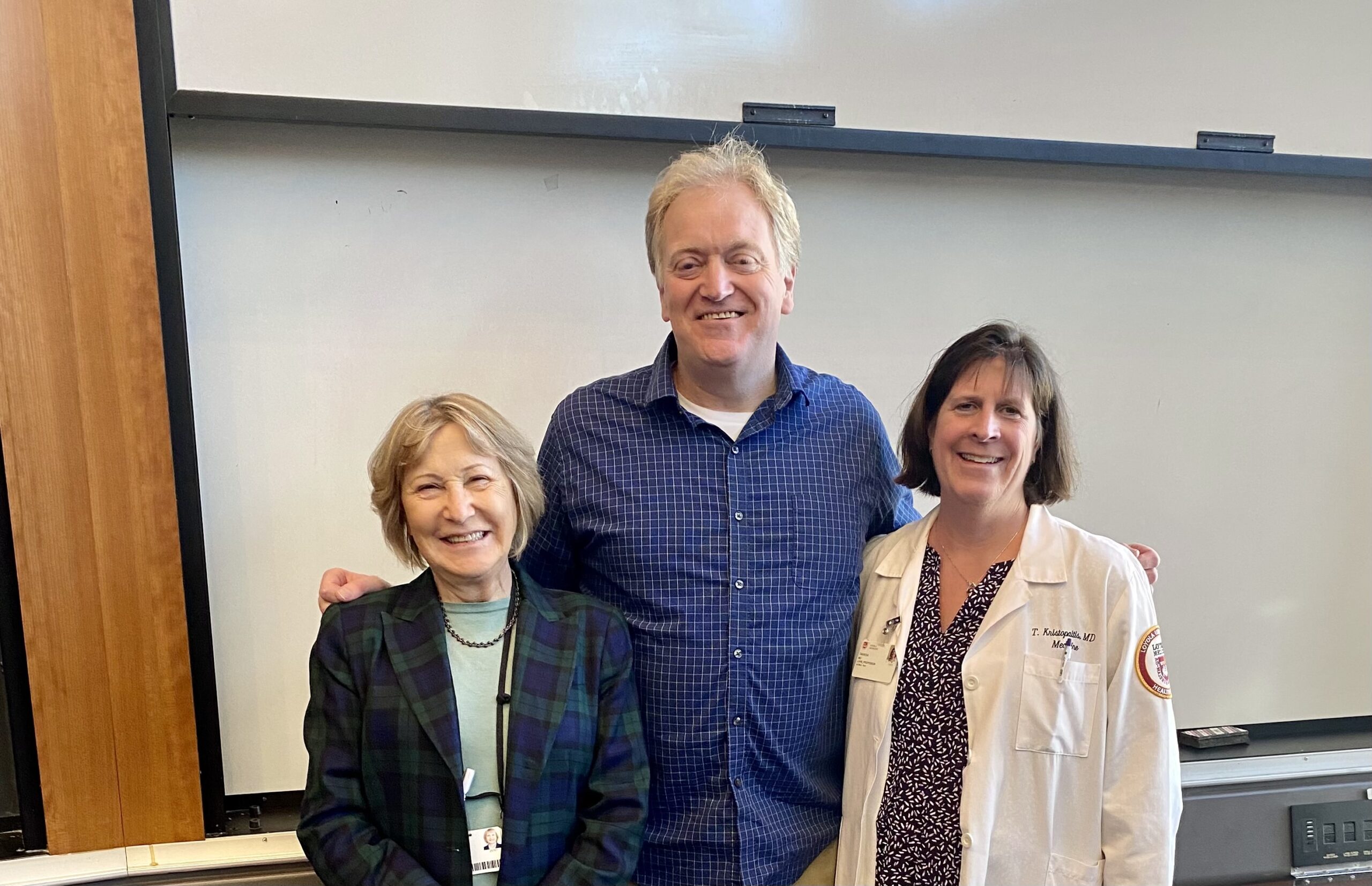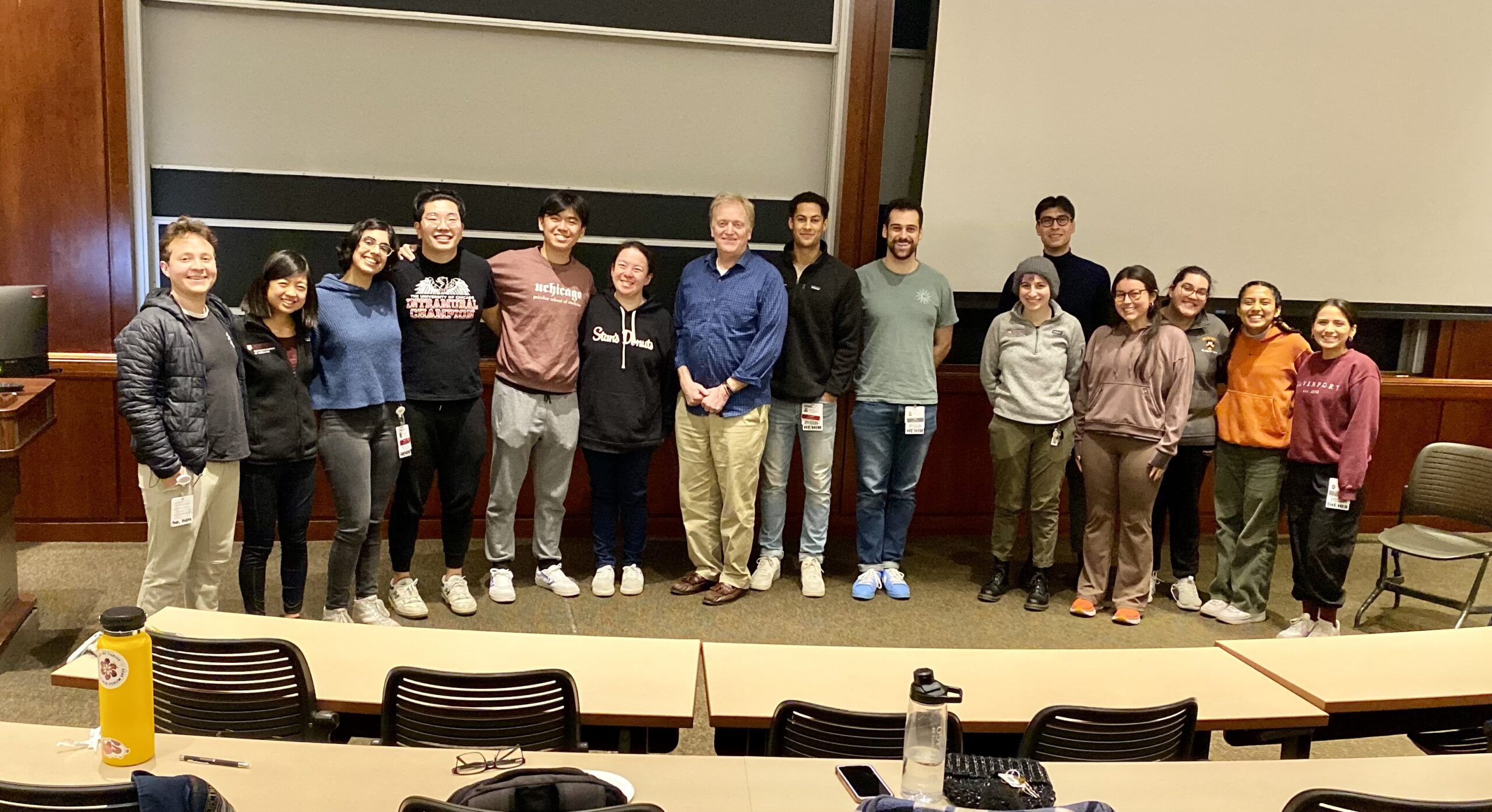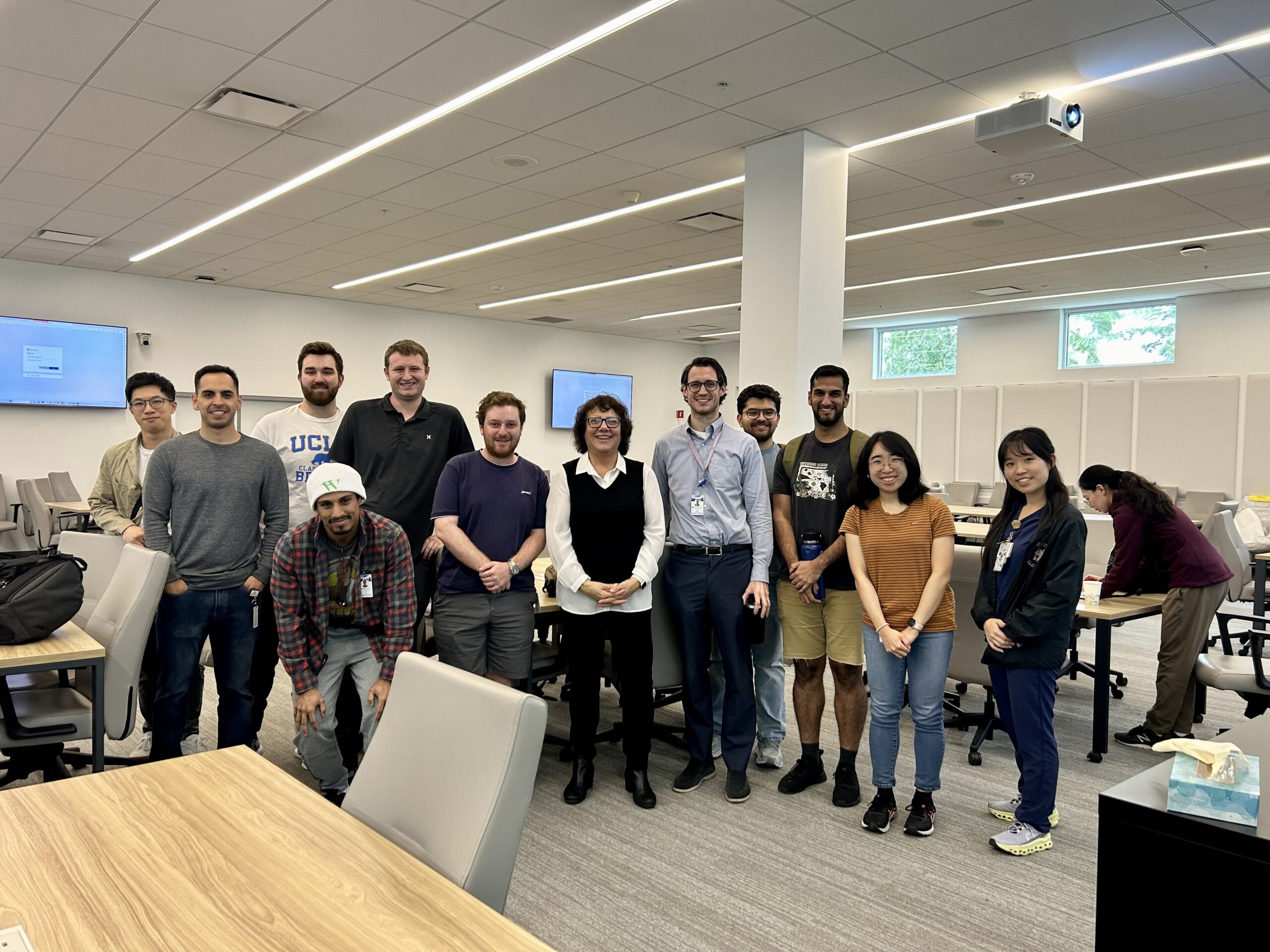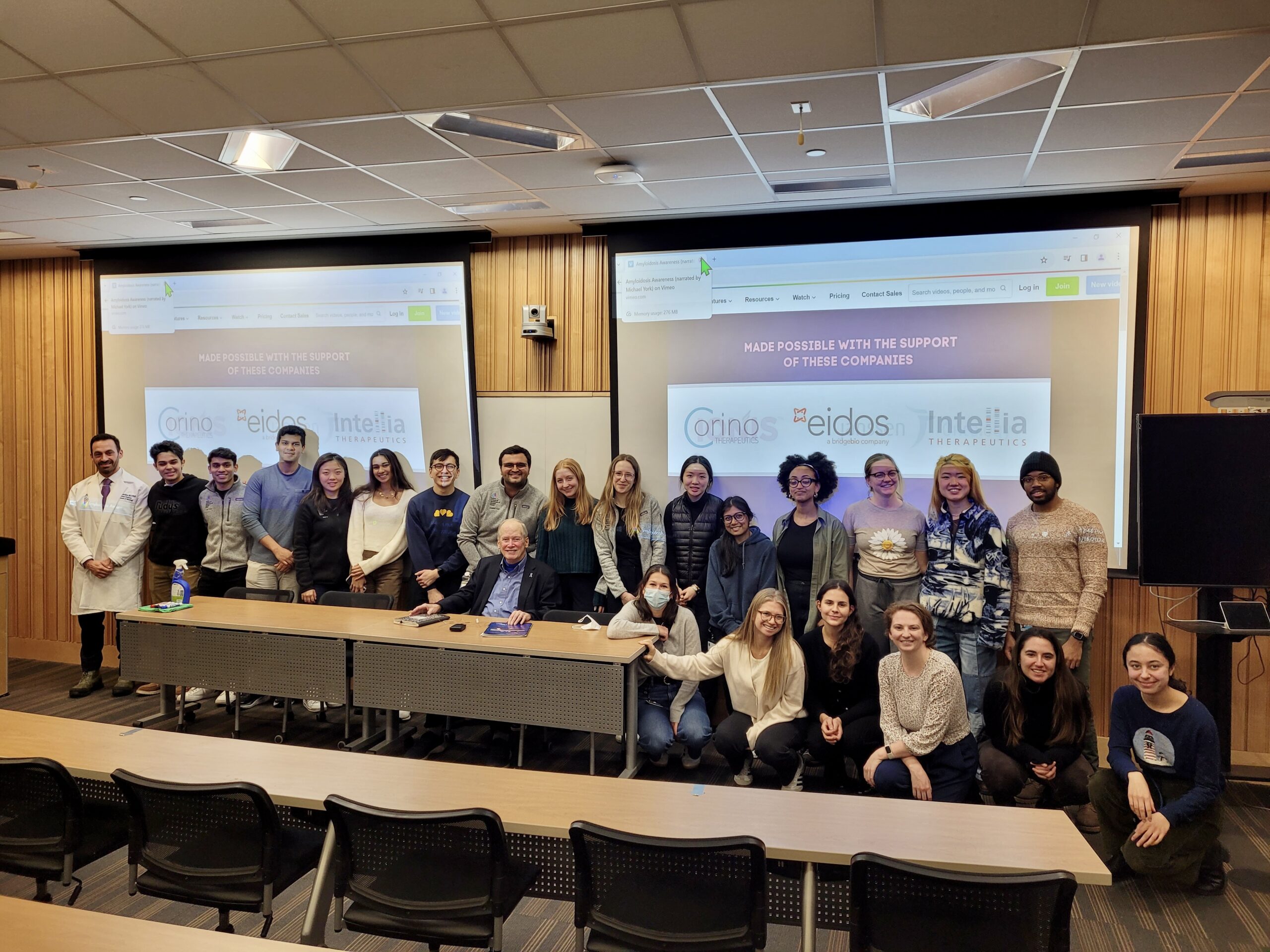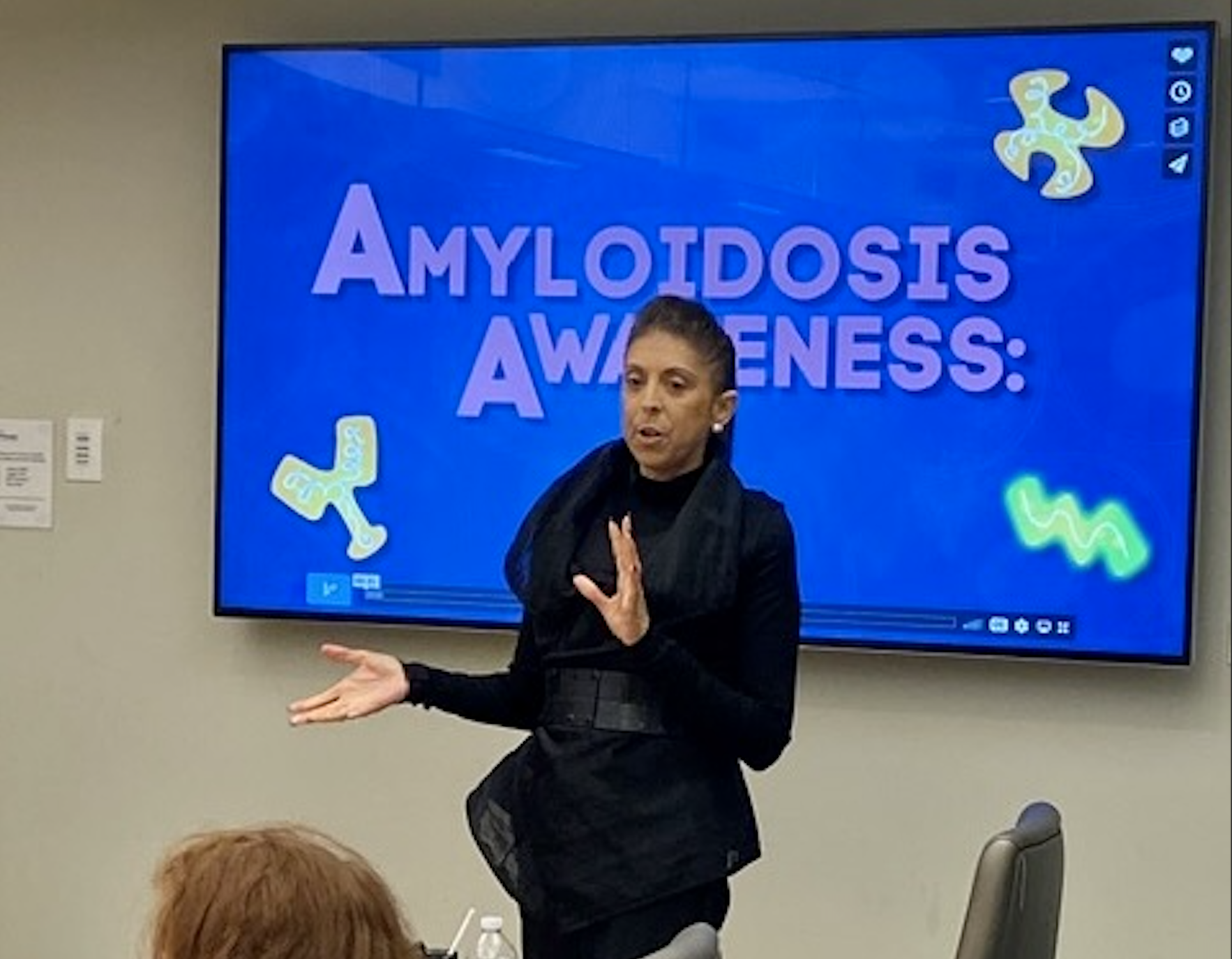
The Challenge
Though Amyloidosis is considered a “rare disease,” there is a belief within the medical community that this disease is not so rare, but instead often under- or mis-diagnosed. Unfortunately, it is commonly diagnosed when it is too late to make a difference. This disease’s complexity makes diagnosis one of the biggest challenges. It is not uncommon to hear from patients that it took multiple years and multiple doctors to ultimately arrive at a correct diagnosis - all the while the disease continued to progress. Until a cure is found, it is imperative to raise awareness within the medical community so that a diagnosis can be determined much sooner, enabling effective treatments and therapies available today to slow the disease progression and improve patient survival.
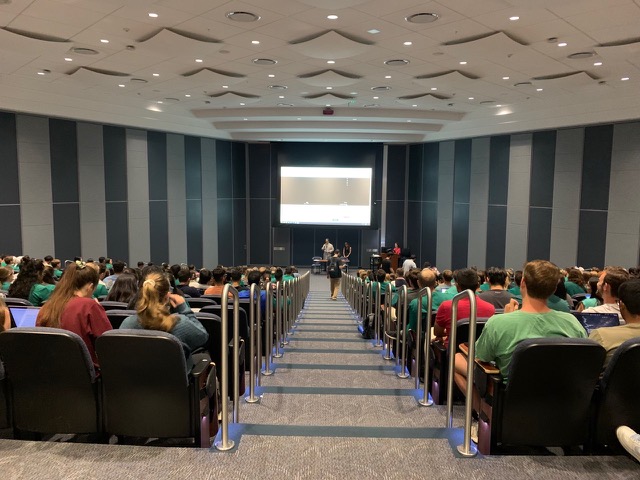
Our Mission
The mission of the ASB is to educate the medical community about this disease through the patient voice which, over time, will improve patients’ lives.
Our Vision
Our vision is a world where amyloidosis is a widely recognized disease, identification methods are established and integrated into mainstream protocols, and diagnosis happens early in the onset of the disease. In this world, there will be no need for a speakers bureau.
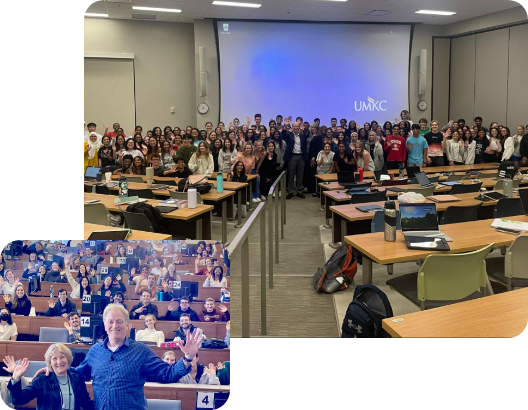
Making an Impact Where It Counts
We focus on educating the next generation of healthcare providers and appreciate that our efforts span future practitioners across a wide array of specialties. Our target universe is large, including approximately 170 medical schools and over 580 internal medicine residency programs. Since we began in 2019 we are proud of what we have accomplished.300+
Presentations15,000+
Medical Students & ResidentsClosing the Medical Education Gap
Lack of awareness, a gap in medical education, is among the most critical and urgent challenges facing the amyloidosis community today. The Amyloidosis Speakers Bureau (ASB) brings the patient voice to medical education, complementing traditional didactic and clinical studies.
Please WATCH this powerful message from amyloidosis experts to medical educators.
Featured ASB News
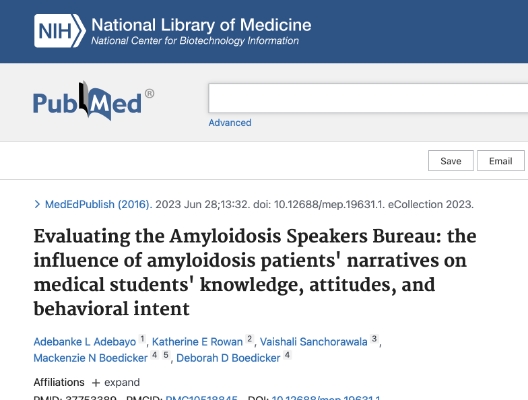
Published Research - Evaluating the ASB
This study analyzed our ASB educational platform and the impact of our patient educators. The peer-reviewed results clearly indicated that we are indeed making a difference.
Testimonials about the ASB
Read what medical experts, medical school professors, residency programs, and medical students are saying.
Kurt F. Bruckmeier, MD, FACP
Ju Oh
Vani Ganesh
Alejandro Ramirez
Raymond Stemrich
Nancy Park
Jeffrey F. Wang
William Bradford
Zachary Hostoffer
Meera Sakthivel
What We Offer
Our offerings are flexible and can accommodate a wide range of situations. Regardless of the format, our patient presentations have been shared with thousands of medical students and physicians across the country, and have been well received both for their medical information content, but also the authenticity of the patient perspective and experience.
01
a) Live virtual presentation.
Hosted by schools and residency programs, one of our patient educators provides a live virtual presentation of their journey with this disease, from symptoms through diagnosis and treatment, and life today, followed by real-time Q&A. Typically one hour in length, we are flexible as to date and time.
b) Live in person presentation.
In this post-COVID world we are again open to in-person requests, such as those within a curriculum course, residency didactic, or presentations to larger student audiences.
02
a) Educational video for medical students.
“Amyloidosis Awareness,” narrated by Michael York and developed in conjunction with amyloidosis experts.
b) Educational video for residents.
A custom video for residents from one of our medical expert advisors discussing the disease, symptoms, pathway for diagnosis, and summary of treatments today.
03
Access to our ongoing education program.
For those wanting ongoing information, our monthly mailing provides information about the disease, summaries of new research findings, invitations to webinars, and links to medical expert videos, podcasts and powerpoint presentations.
FOR CURRICULUM COURSE DIRECTORS AND RESIDENCY PROGRAM DIRECTORS:
- Our patient educators are all volunteers and amyloidosis patients. To prepare them, we provide extensive resources both in story development and presentation skills. Our educators provide a personal, transparent and candid insight into their journey.
- Our educators are flexible and can work with preferred dates/times.
- Our offering can be adapted to accommodate individual considerations. For example:
- A live virtual presentation, or
- A live in-person presentation, or
- A pre-taped 30-minute presentation, or
- A custom alternative.
- Our offering can be customized to focus on specific types of amyloidosis (e.g., AL, hATTR, ATTRwt) and/or organ involvement (e.g., heart, kidney, GI, nerves) to align with relevant topics.
- Course/program directors can view speaker pre-taped presentations in advance to ensure appropriateness, upon request.
NOTE:
- We do not, nor do our educators, advocate for industry interests, specific drug treatments, healthcare providers, politics, or religion. As such, we are able to maintain a conflict-free focus.
- There is no cost.
We believe, and feedback confirms, our offering provides a compelling alternative that advances students’ and physicians’ knowledge of amyloidosis while sharing valuable insights from both the patient and clinical perspectives.
Contact Us
To learn more about the ASB or discuss hosting us for an educational session, please contact us. We’d love to hear from you!
The ASB in Action
Enjoy a look at the work the ASB is doing to help raise awareness of amyloidosis with students, trainees, and educators around the country.
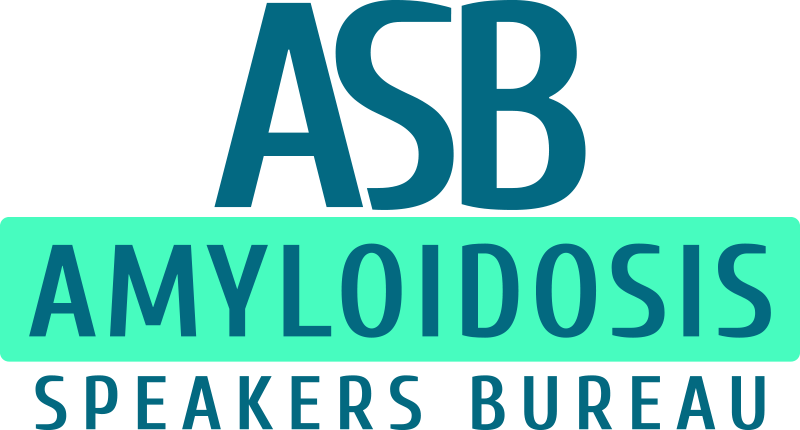
Meet the ASB Advisors
We are proud to have these medical experts and patient advocacy leaders in the world of amyloidosis, some of whom are also patients, as advisors to support our initiative.
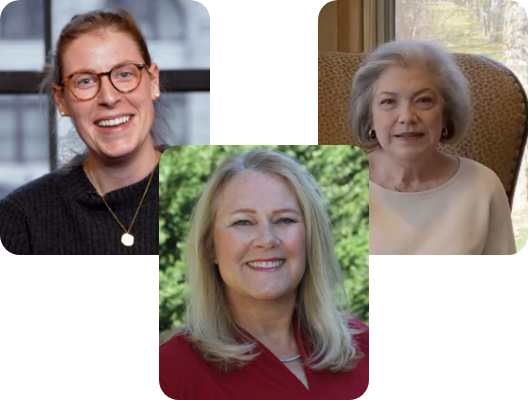
The ASB Operating Committee
The ASB is directed by an operating committee of volunteers, the majority of whom are amyloidosis patients. We collaborate as a team with respect and ethics, and act with a shared purpose.
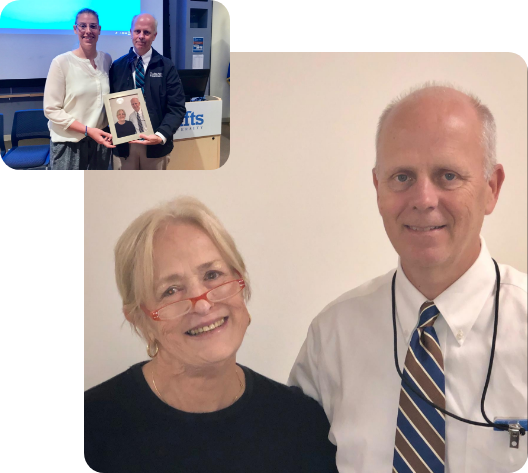
History of the ASB
In the summer of 2017, Charolotte Raymond was undergoing treatment for amyloidosis at Tufts Medical Center. There, she met with Gordon S. Huggins, M.D., Cardiologist and Associate Professor at Tufts University School of Medicine. After learning more about Charolotte’s story, Dr. Huggins invited her to speak to his second-year medical students. He explained that medical school’s second-year curriculum focuses on illnesses and diseases, and hearing about a rare disease directly from a patient would have a lasting impact on the audience of future doctors. In fact, the feedback from Charolotte’s presentation was so meaningful that it inspired her to develop the concept of a speakers bureau, comprised of patients, whose focus was to reach out to the medical schools across the country and raise awareness of the disease. After much searching, Charolotte approached Mackenzie’s Mission, whose purpose was strongly oriented towards raising awareness, about bringing her concept to fruition. In February 2019 the Amyloidosis Speakers Bureau was launched.
Disclosure
Neither Mackenzie’s Mission nor the ASB endorse any company, product or treatment. Patient educators are unpaid volunteers who may, at their own discretion, mention specific treatments, healthcare centers, and physicians while sharing their personal journey. The ASB is supported predominantly by Mackenzie’s Mission through all facets of program management, fundraising activities and general donations, and to a lesser part by directed donations and grants from Alexion Pharmaceuticals, Alnylam Pharmaceuticals, AstraZeneca Pharmaceuticals, BridgeBio Pharma/Eidos Therapeutics, Ionis Pharmaceuticals, Janssen Biotech, Inc., Pfizer Inc., and Prothena. No donor or grantor has any influence over any facet of the ASB operations.
